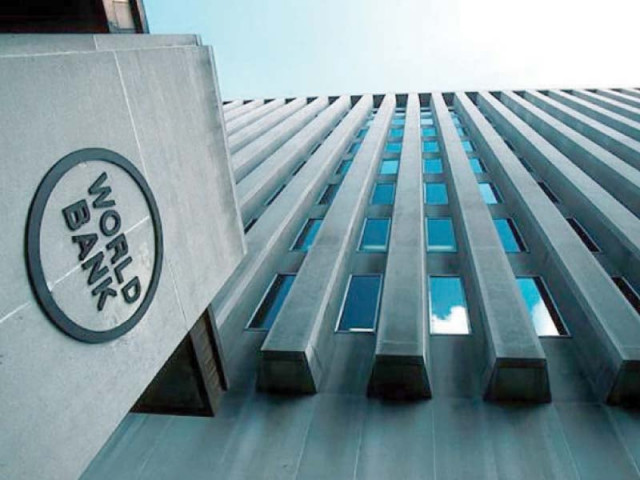Illango calls for political consensus on economic reforms
Outgoing WB country director says Pakistan not a hard country but a challenging one

Pakistan cannot achieve a sustainable and high economic growth rate without bipartisan political consensus on economic reforms, the outgoing World Bank Country Director, Illango Patchamuthu, has said.
Illango, who stayed in Pakistan for five years, also advised the Independent Power Producers (IPPs) to take a “haircut” for reduction in circular debt that is necessary for a financially viable power sector.
During two years of the Pakistan Tehreek-e-Insaf (PTI) government, the circular debt has doubled to Rs2.2 trillion, despite increase in power tariffs at least four times.
Illango, who had direct access to Prime Minister Imran Khan, was once described as a member of the federal cabinet by Industries Minister Hammad Azhar.
His will take his new assignment in Washington as the director of Strategic Planning for South Asia Department.
Illango is replaced by Najy Benhassine as the new country director for Pakistan, where the World Bank is currently managing $11 billion lending portfolio.
“Political consensus for economic policy-making is required and without bipartisan consensus on direction of economic reforms, it is extremely difficult to see success in stabilising as well as in ensuring the economy to take off,” he said in an interview with The Express Tribune on his last day in office.
He said that there was much more dialogue on the economic management than before and its broad-based economic governance but eventually it is the prime minister and the cabinet who are responsible for economic decision-making.
“Decision-making is layered, time consuming and not necessarily predictable and sustainable because reverses happen and this is going on for many years,” he said.
According to Illango, such kind of decision-making also partially affected the destination of the foreign direct investment.
Illango further said that the budget numbers were ambitious on the revenue side and there was scope for further expenditure efficiency, particularly subsidies.
The lack of political consensus among the parties and within the ruling party has implications for the country’s economic viability. It has remained stuck up in the International Monetary Fund (IMF) loans and also failed to attain a growth rate that is considered critical for creating jobs for the young population.
“When I came, the country was in the IMF programme and when I am leaving it is in the next IMF programme,” Illango said. In between, Pakistan had a higher growth rate of 5.5% that it did not see in many years but it was fuelled by consumption rather than investment, he added.
Pakistan’s 15% investment-to-GDP ratio is not enough and with this kind of investment rate, it can grow at best 3% to 3.5% per annum, he said. “To achieve 5% to 7% economic growth rate, Pakistan needs to have higher investment.”
However, he underlined that in the past years, Pakistan did make some significant gains. Its poverty ratio declined, ease of doing business improved and public road infrastructure got better. “Many countries would dream of having a road infrastructure that Pakistan has.”
When asked about his stay in the country, he said that when he came here five years ago, everybody would say Pakistan was a hard country. “Pakistan is not a hard country but a challenging one,” he said, adding that there was an appetite for reforms in Pakistan.
Unlike other lenders and diplomats, Illango had greater access to Pakistan’s power corridors. Hammad Azhar had called him a member of the federal cabinet. When asked how he earned this distinction of being called as a member of the federal cabinet, Illango responded: “I work with my team, my team brings me the issues, we analyse and look at these through political economy landscape and we see what is feasible and what is not.”
As the country director, he said, “We need to have one-on-one connection with key counterparts, whether it’s the prime minister, former chief minister of Punjab or the current chief minister of Sindh.”
Power sector
The World Bank has been providing advice to Pakistan on the power sector during the last many decades, including on the issue of circular debt, which still remains unresolved.
Illango said that the WB’s advice was taken only when budget support loans were taken but the implementation had always remained weak.
“High cost of generation is causing circular debt,” he noted. “We can take responsibility for policy advice but can we take responsibility for the government signing expensive power purchase agreements? No, I don’t think we can take this responsibility.”
The circular debt has doubled from Rs1.1 trillion to Rs2.2 trillion in less than two years. The debt servicing of the IPPs had been frontloaded in 10 years and its restructuring could help reduce the circular debt, Illango said.
Illango did not comment on the ongoing discussions between Pakistan and the IPPs. But he said that everybody had to work for making the power sector financially sustainable. This would require all the stakeholders to share their burden, including the consumers, he added.
“The private sector needs to take haircut to make the power sector financially sustainable.”
FBR reforms
The Federal Board of Revenue (FBR) needed consistent leadership that stayed the course, said the former World Bank chief while commenting on the FBR’s performance.
“An FBR chairman should stay for at least three years, if Pakistan wants major tax reforms to be done,” he added.
Premier Imran has appointed five chairpersons in the past two years.
Illango said the frequent changes that were creating uncertainty about the direction of the FBR were not going to help.
He also highlighted factors that were keeping tax collection low in Pakistan.
According to him, the general sales tax was a broken system and the World Bank was pushing for the harmonisation of GST on goods and services.
The urban immovable property tax rates had remained unchanged for years. The agriculture income tax did not reflect the size of the sector, he said. “Pakistan needs to have 15% tax-to-GDP ratio that at one time increased to 13% but has again come down,” he said.



















COMMENTS
Comments are moderated and generally will be posted if they are on-topic and not abusive.
For more information, please see our Comments FAQ